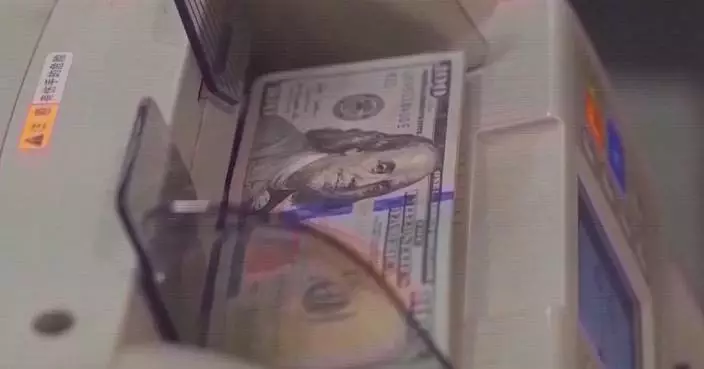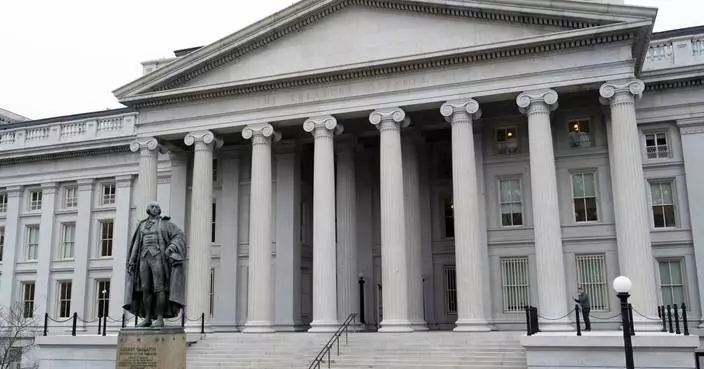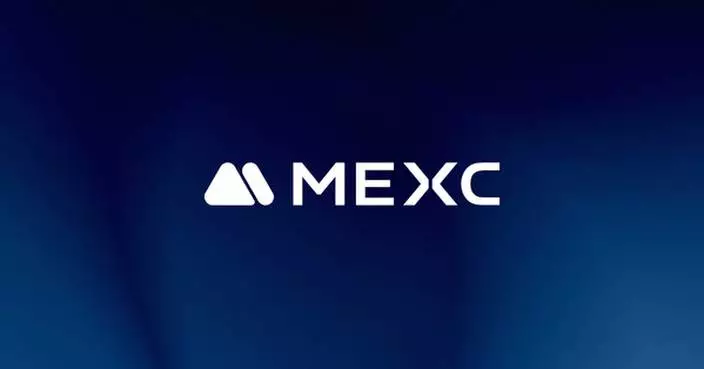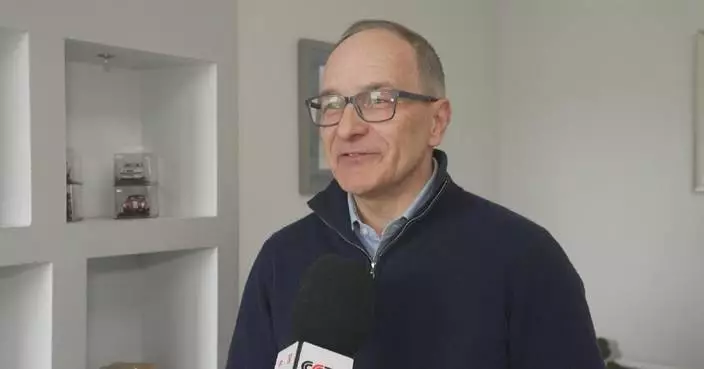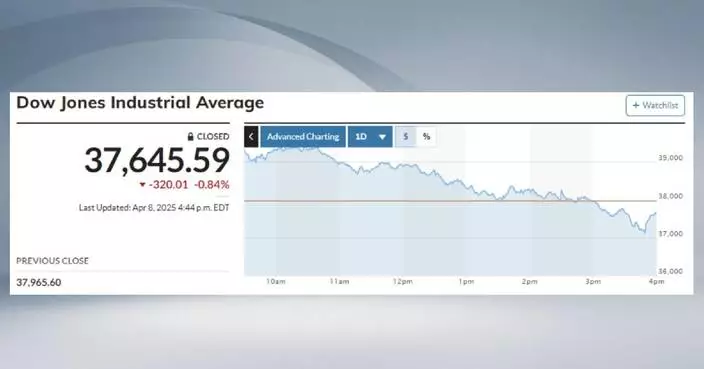阿拉伯聯合大公國杜拜--(BUSINESS WIRE)--四月 5, 2025--
(美國商業資訊)-- 總部位於杜拜的全球第一大金融衍生品機構MultiBank Group在2月26日至27日舉辦的 2025年墨西哥金融博覽會 上榮獲兩項殊榮: 「最佳客戶資金保護經紀商」 和 「最佳社交交易解決方案」 。
本新聞稿包含多媒體資訊。完整新聞稿請見此: https://www.businesswire.com/news/home/20250404681463/zh-HK/
墨西哥金融博覽會是拉丁美洲最具影響力的金融盛會之一,匯聚了交易、投資和金融科技領域的全球領軍人物,共同探討金融市場的最新發展動態。
MultiBank Group在享有盛譽的墨西哥金融博覽會上獲得的這一備受推崇的肯定,彰顯了其對卓越監管、技術創新以及客戶至上的解決方案的堅定承諾。
MultiBank Group創辦人兼董事長 Naser Taher 在談及這兩項成就時表示: 「在2025年墨西哥金融博覽會上同時榮獲『最佳客戶資金保護經紀商』和『最佳社交交易解決方案』獎,是對我們價值觀的強力肯定。這些獎項體現了我們致力於以最高的透明度和監管標準來保護客戶資產,同時推出創新平台,讓交易社群的連結更加密切。這一肯定也是對我們墨西哥團隊傑出工作的嘉獎,他們不斷踐行我們的全球願景,並在當地產生正向影響。」
MultiBank Group繼續為金融產業的信任與創新樹立標竿。「最佳客戶資金保護經紀商」獎彰顯了MultiBank Group強大的法規遵循基礎,以及其透過在頂尖銀行中對客戶資金進行隔離存放來保護客戶資產的承諾,確保了最高水準的安全性和透明度。
與此同時,「最佳社交交易解決方案」獎則是對MultiBank Group充滿活力的下一代平台的肯定,該平台賦能經驗豐富的交易者和有抱負的新手交易者,透過互動性強、以社群為驅動的功能實現交流、學習和成長。
MultiBank Group在100多個國家擁有超過200萬客戶,日交易量超過181億美元。在不斷擴大全球影響力的同時,該集團在交易和金融服務的各個方面都保持著卓越的聲譽。
關於MULTIBANK GROUP
MultiBank Group於2005年在美國加州成立,是金融衍生品領域的全球領導者,為100個國家的超過200萬客戶提供服務,日交易量超過181億美元。MultiBank Group以其創新的交易解決方案、嚴格的法規遵循和卓越的客戶服務而著稱,提供廣泛的經紀服務和資產管理解決方案。它在五大洲受到全球超過17家最負盛名的金融機構的監管。集團屢獲殊榮的交易平台就多樣化的產品提供高達500:1的槓桿,包括外匯、金屬、股票、商品、指數和加密貨幣。MultiBank Group已獲得超過70個金融獎項,以表揚其卓越的交易服務和法規遵循。如欲瞭解更多資訊,請造訪MultiBank Group的 網站 。
免責聲明:本公告之原文版本乃官方授權版本。譯文僅供方便瞭解之用,煩請參照原文,原文版本乃唯一具法律效力之版本。

請前往 businesswire.com 瀏覽源版本:https://www.businesswire.com/news/home/20250404681463/zh-HK/
CONTACT: mohammad.shakfeh@multibankfx.com
00971585754191
KEYWORD: LATIN AMERICA UNITED ARAB EMIRATES MEXICO MIDDLE EAST CENTRAL AMERICA
INDUSTRY KEYWORD: BANKING TECHNOLOGY PROFESSIONAL SERVICES DIGITAL CASH MANAGEMENT/DIGITAL ASSETS COMMUNICATIONS SOCIAL MEDIA ASSET MANAGEMENT APPS/APPLICATIONS SOFTWARE FINTECH FINANCE
SOURCE: MultiBank Group
Copyright Business Wire 2025.
PUB: 04/05/2025 03:17 PM/DISC: 04/05/2025 03:17 PM
http://www.businesswire.com/news/home/20250404681463/zh

MultiBank Group繼續為金融產業的信任與創新樹立標竿,並在2025年墨西哥金融博覽會上榮獲兩項殊榮:「最佳客戶資金保護經紀商」和「最佳社交交易解決方案」。
BUENOS AIRES, Argentina (AP) — The libertarian government of President Javier Milei on Friday announced that it would lift most of the country’s strict capital and currency controls next week, a high-stakes gamble made possible by a new loan from the International Monetary Fund. It marked a major step forward in Milei's program to normalize the economy after decades of unbridled spending.
In a nationally televised address, Economy Minister Luis Caputo said the IMF’s executive board had decided to approve the $20 billion bailout package announced earlier this week, which offers a lifeline to Argentina’s dangerously depleting foreign currency reserves.
“The agreement will allow us, starting Monday, to lift the exchange rate controls that so severely limit the normal functioning of the economy,” Caputo said from the government headquarters in Buenos Aires. “Investments that are currently pending will begin to come into Argentina to take us to this new stage.”
The capital controls, known here as “el cepo,” or “the trap, ” are a tangle of regulations that help to stabilize the peso at an official rate and prevent capital flight from Argentina.
Imposed by a previous administration in 2019, the restrictions curb individuals’ and companies’ access to dollars, discouraging the foreign investment that Milei needs to achieve his goal of transforming heavily regulated Argentina into a free economy.
The restrictions made it almost impossible for ordinary Argentines to purchase dollars, giving rise to a black market that is technically illegal but that almost every Argentine uses to sell their depreciating, inflation-prone pesos anyway.
Caputo said the central bank would receive $12 billion from the IMF on Tuesday — a bigger-than-expected upfront sum that gives Argentina's reserves breathing room to make the major change and reflects the fund's confidence in Milei's radical reforms.
“The Fund told us that what we’d done was practically impossible,” Caputo said.
The new policy also involves cutting the Argentine peso free from its peg to the dollar. But instead of a risky free float, Argentina is allowing the peso to trade within a so-called currency band that ranges from 1,000 to 1,400 pesos per dollar. The band will expand 1% each month, the bank said.
This breaks from Milei's current policy of letting the peso weaken at a pace of 1% against the dollar each month.
That crawling peg drew backlash from investors worried about the central bank burning through its reserves to prop up the peso, with the central bank forced to spend $2.5 billion to defend the official exchange rate in just the past few weeks.
When announcing the removal of exchange controls Caputo insisted it was “not a devaluation.”
Milei’s team has sought to fend off a politically costly official devaluation of the peso that could push inflation much higher. Keeping a lid on rising prices — a flagship campaign promise — has helped the political outsider hold up approval ratings despite his brutal cuts to state spending that might otherwise trigger social unrest.
But it was clear that the peso would have to depreciate, with economists guessing that it would fall to close to its black-market rate. On Friday, it was 1,375 pesos to the dollar, compared with the official exchange rate of 1,097 pesos.
Marcelo J. García, director for the Americas at New York-based geopolitical risk consultancy Horizon Engage, said he expected an initial devaluation of around 20-25%.
“A big question mark is inflation in the second quarter of the year. It’s very likely there will be a shock,” said Leonardo Piazza, chief economist at Argentine consulting firm LP Consulting.
The announcement came as the IMF’s executive board was preparing to approve the new 48-month, $20 billion loan program with Argentina, the 23rd rescue package in the nation's long and tumultuous history. The South American nation is already the IMF's biggest debtor, owing some $43 billion.
After the unusually large first $12 billion disbursement from the IMF hits Argentina's central bank Tuesday, another $2 billion will arrive in the next two months, the government said. International organizations like the World Bank will contribute several billion more dollars as part of the deal. The Inter-American Development Bank announced $10 billion later Friday, disbursed over the next three years.
Before Milei took office in December 2023, the previous left-wing Peronist administration ran up massive budget deficits, leading to sky-high inflation and a chronically weakening peso.
By scrapping subsidies and price controls, firing tens of thousands of state workers and halting the central bank's overreliance on printing pesos to pay the government’s bills, Milei has delivered Argentina's first fiscal surplus in years and largely stabilized its macroeconomic imbalances, thrilling markets even as his shock-therapy approach has hit the population hard.
Yet for all the changes and the financial pain, there have been scant signs of a sustainable recovery. Analysts say that a long-term economic revival involves the removal of capital controls, the amassing of currency reserves and access to international capital markets.
As a result foreign companies — wary of pouring their cash into a country infamous for defaulting on its debt — have waited remained on the sidelines despite Milei's new tax breaks and other perks for investors.
Milei has rejected pressure from investors over the past year to lift the capital controls, insisting that the economic conditions needed to be right. It's a high-risk mission, as scrapping the “cepo” could unleash years of pent-up demand for U.S. dollars and spark a currency run as companies try to send their long-trapped profits home.
“It could be a tsunami of money out,” said Christopher Ecclestone, a strategist with investment bank Hallgarten & Company. “It’s a total guessing game as to what people will do.”
The government said that while it was lifting restrictions for the public, it would retain taxes on card purchases abroad and some regulations on companies. For instance, from 2025 on, multinational firms will be able to repatriate their earnings. But to take out their holdings already trapped in the country, they'll need to exchange the debt for dollar-denominated security bonds.
It's an effort to insure against capital flight, which would imperil Milei's primary accomplishment of lowering inflation ahead of midterm elections in October that are crucial for his libertarian party to expand its small congressional minority.
“The announcement is more audacious than expected. The government is making a bit of a leap of faith by lifting the cepo,” said García. “It is bolder than one could have imagined at the start of an electoral year.”
It's also bold timing, analysts say, considering the local market turmoil sparked by U.S. President Donald Trump’s tariffs. In recent days, Argentine stocks and bonds have plunged.
Meanwhile, with traders nervous about a possible peso devaluation under Argentina's IMF deal, the closely watched gap between Argentina's currency exchange rates grew by over 20%. The gap is a key indicator of confidence in the government and can fuel inflation, which already accelerated in March to its fastest pace in seven months.
On Friday, Argentina’s National Statistics Institute reported that consumer prices ticked up 3.7% last month compared to 2.4% in February, mainly as a result of rising food prices.
Associated Press writer Almudena Calatrava contributed to this report.
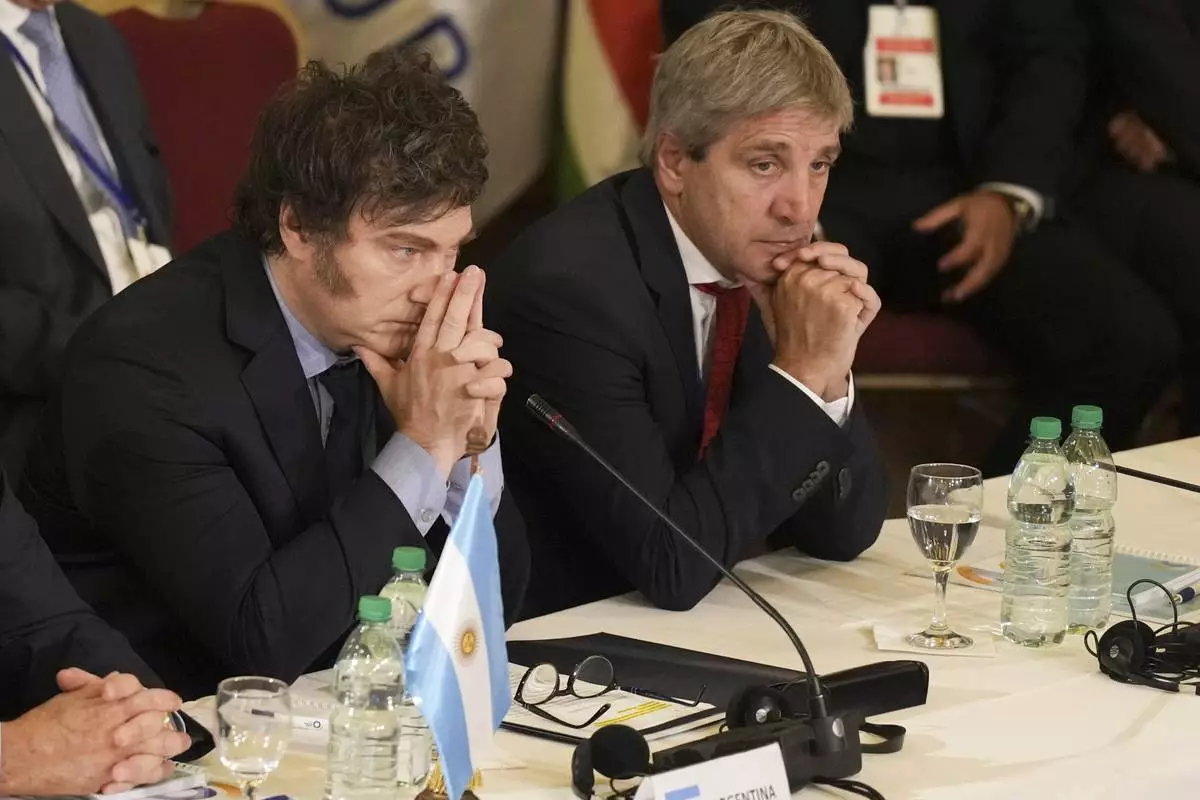
FILE - Argentina's President Javier Milei, left, and Economy Minister Luis Caputo attend the Mercosur Summit in Montevideo, Uruguay, Dec. 6, 2024. (AP Photo/Matilde Campodonico, File)
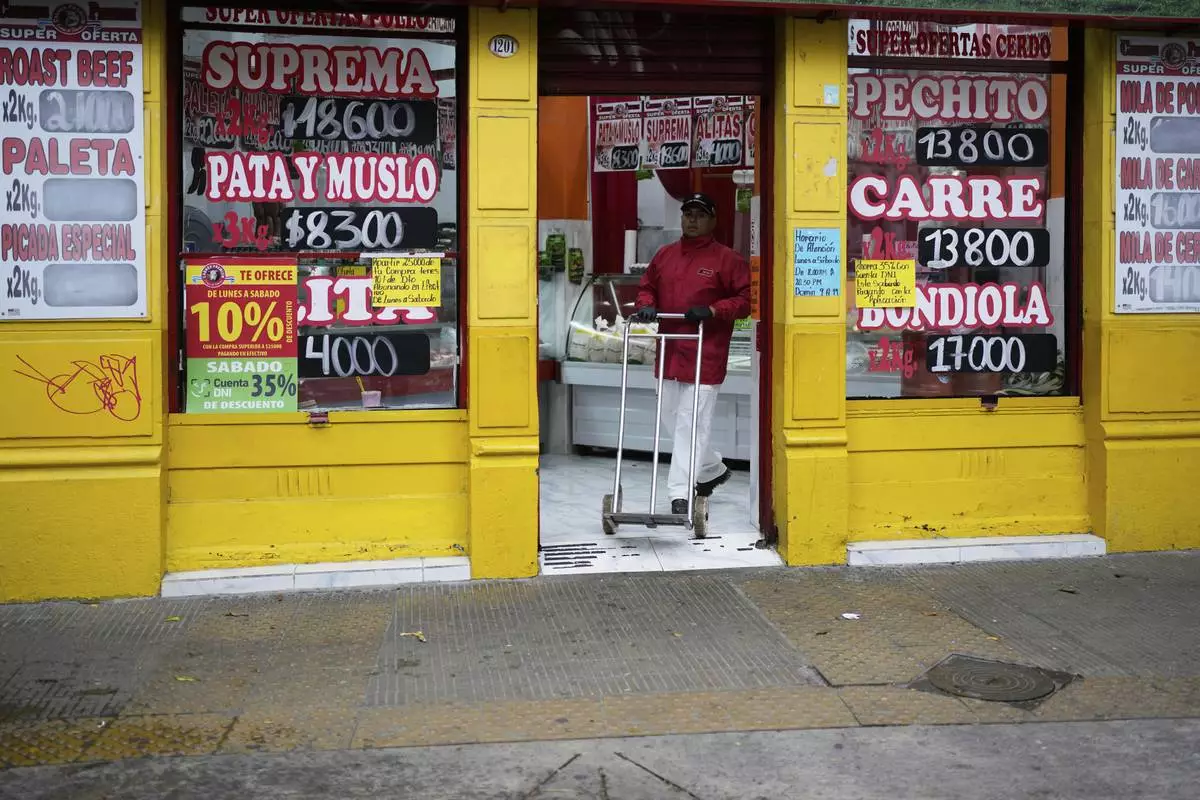
A worker pushes a dolly at a butcher in Buenos Aires, Argentina, Monday, March 31, 2025. (AP Photo/Natacha Pisarenko)
















